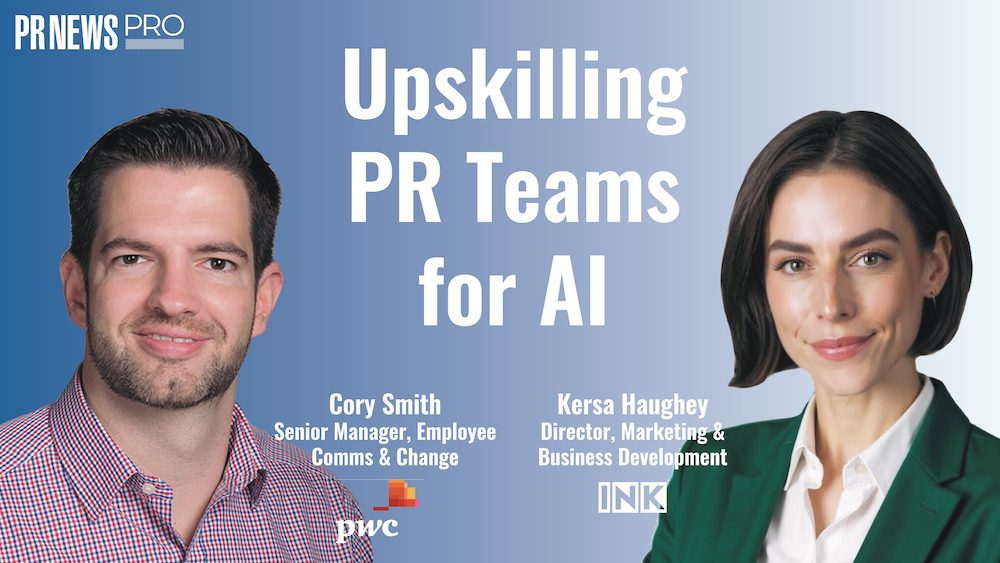Numerous legal and regulatory challenges will vex marketers in 2017.
Brexit and the U.S. presidential election aside, to say 2016 was one of the most tumultuous and unpredictable years in history was an understatement. The Federal Trade Commission (FTC) doubled down on its enforcement of the Testimonial and Endorsement Guides, brought its first native advertising case, and continued to target privacy promises and health related claims in the mobile app space. The year ended with news that the Justice Department was investigating possible price fixing activity among advertising agencies.
What legal issues should marketers be concerned about this year? Here’s a rundown.

Consumer Privacy
For marketers, it is increasingly critical to focus on protecting the privacy of consumers and ensuring transparency in how consumer data is used. In 2016, the popularity of the Pokémon GO app—the game was downloaded approximately 7.5 million times in the United States alone during its first week of release—prompted a letter from Sen. Al Franken (D-Minn.) with questions about the company’s privacy policy and use of consumer data. In a similar example, legislators pressed the makers of various Internet of Things products about privacy issues, and expressed concern about vulnerability of consumers to identity theft and data breaches, particularly in the context of children’s “smart” toys.
Privacy and data security remain a priority for the FTC, with the agency bringing a host of actions ranging from a case against a mobile app company that allegedly deceptively tracked the locations of hundreds of millions of consumers (including children) to serve them geo-targeted advertising in contravention of its privacy policy to a settlement with a dating site that failed to protect the account and profile information of 36 million users.
Advertisers may also have a new regulator to worry about in 2017 after the Federal Communications Commission passed new privacy rules that require Internet Service Providers to obtain opt-in consent before sensitive data (defined to include browsing and app usage history) can be collected and used for ad targeting purposes. The ad industry has vowed to fight the rules – characterizing them as “unprecedented, misguided, counterproductive, and potentially extremely harmful” – although the shift in administration could result in a change of course.
In the realm of consumer class actions, cases based on data breaches continue to be a thorn in the side of advertisers. Courts provided hope for plaintiffs with rulings like the Seventh Circuit Court of Appeals’ reversal of dismissal in a data breach suit against P.F. Chang’s. It held that the risk of future fraudulent charges and identity theft created by the company’s breach constituted a “certainly impending” future injury to establish standing, paving the way for future suits.
Social Influencer Marketing and the Rise of Microbloggers
2016 will be remembered as the year in which the FTC got serious about enforcing its Testimonial and Endorsement Guides. Confirming fears that the days of warning letters were over, the FTC brought formal actions against Warner Brothers and Lord & Taylor resulting from the failure of their social influencers to disclose that they were being paid. The Consent Orders in those cases require the companies to adopt comprehensive compliance and monitoring programs that have become the new industry standard.
In 2017, we may see increased scrutiny of microbloggers, niche social influencers that have a smaller but more highly engaged following. In fact a number of Consumer Watchdog groups have already filed petitions with the FTC urging them to investigate campaigns using microbloggers that they allege are not making the proper disclosures. Marketers should ensure that they are following the same procedures for engaging microbloggers and monitoring their activities as they do with celebrities and more prominent social influencers as the FTC will surely apply the same standards.
Native Advertising in New Shapes and Forms
Native advertising spend continues to skyrocket. According to Business Insider, native advertising will drive 74% of ad revenue by 2021. Marketers began 2016 with a new set of Native Advertising Guidelines presented as an early Christmas present by the FTC on the eve of Christmas 2015. As a result, 2016 was largely dominated by an effort on the part of publishers and advertisers to first understand and then implement the Guidelines. Marketers struggled with confusion about what terms could be used to identify native ads, in light of the FTC’s warning that words like “presented by” or “sponsored,” which had been commonly used in the industry may not be acceptable.
The industry was further surprised when the FTC brought its first case in the form of a formal enforcement action against Lord & Taylor. The national retailer launched a social media campaign to promote a private label clothing brand that featured branded blog posts, photos, video uploads, native advertising editorials in online fashion magazines, and online endorsements by a team of specially selected “fashion influencers” who, according to the FTC, failed to disclose they had been paid and received free product. A study released in the middle of 2016 reported that a large percentage of the industry was not in compliance with the FTC Guides.
While marketers will continue to struggle in 2017 about when a disclosure is required and what the disclosure should say, these challenges are likely to intensify as native advertising takes on new and different forms – like “native songs” that will make disclosure even more difficult. Marketers will need to work creatively with their lawyers to figure out how to make the required disclosures in new and evolving native ad formats that were not contemplated in the Guides.
False Advertising Lawsuits
The scope and volume of lawsuits alleging false adverting and marketing against companies is expected to rise in 2017, including claims related to health benefits and organic or “natural” claims. Consumer class actions challenging advertising have always run the gamut of lawsuits against products as varied as oatmeal and security systems. But in recent years, plaintiffs’ attorneys have paid particular attention to health-related claims, with targets such as deli meat (labeled as “100% Natural” and containing “No Preservatives”), a juice and smoothie beverage line that “exaggerated” the presence of healthy ingredients such as kale, and wearables that purport to track heart rate and sleep patterns.
The FTC’s docket has similarly been heavy with actions focused on health-related claims, with multiple cases against the advertisers of weight loss products (think green coffee dietary supplements). In a suit against four makers of personal care products marketed as “natural,” “all natural,” or “100% natural,” the FTC provided guidance for advertisers on the hotly contested terminology. Each of the companies touted their products as natural, the agency said, but because they contained synthetic ingredients, the Commission asserted that their claims were false and deceptive. In a statement about the action, the FTC warned advertisers that “all natural” claims will only stand when no artificial ingredients or chemicals are included – advice to rely upon moving into the new year.
Linda Goldstein is chair of the Advertising, Marketing & Media Division at Manatt, Phelps & Phillips. She is also chair emeritus and head of the Brand Activation Association’s Government and Legal Affairs Committee.
Related Articles:
5 Legal Mistakes Agencies Make When Seeking New Business
2017 Influencer Marketing Changes Checklist
Chief Marketer 2017 Super Book
 Network
Network

